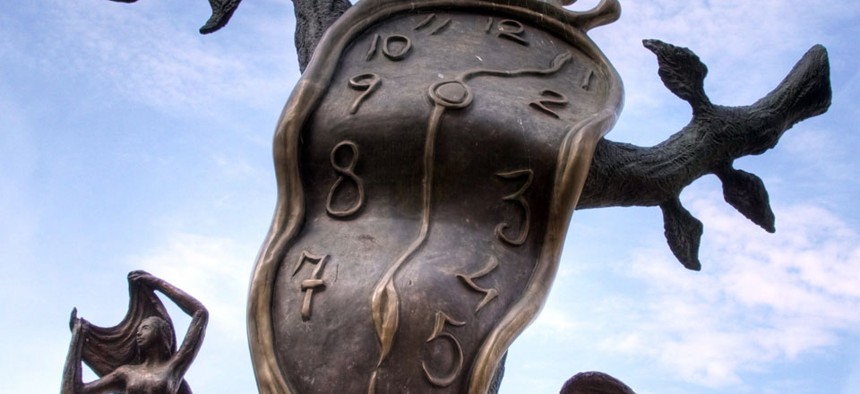
A.Birdin/Shutterstock.com
Being Powerful Distorts People's Perception of Time
With all the extra time they imagine they have, top execs tend to experience less stress than those lower down the ladder.
Maria Konnikova, writing in the New York Times, made the point recently that there’s much more to poverty than just a shortage of money. Being poor, she said, brings with it other abstract deficits, most notably a lack of time. She quoted Sendhil Mullainathan, an economist and the author the book Scarcity: “The biggest mistake we make about scarcity is we view it as a physical phenomenon. It’s not.”
Saying time is scarce seems imprecise, given that each day, no one has more than 24 hours. But what can change from person to person, and what shapes the way we map out our days, is our subjective perception of time—how quickly it passes and how much of it we think we have.
A new study out of the University of California at Berkeley examined how the perception of time can be distorted by being in a position of power. With the help of hundreds of people, the study’s authors found that the more power people have, the more time they feel they have available in their lives. The researchers primed some subjects for feelings of either power or powerlessness by assigning them to the role of either boss or employee in a mock task of solving brain teasers. The bosses were told they’d be making decisions about which puzzles to solve and how to divvy up the highly-sought-after candy prize at the end of the exercise. Once primed, the subjects filled out surveys that revealed their perceptions of time availability.
The reason powerful people feel they have an abundance of time, the study goes on to say, is that their feelings of control over many aspects of their lives spill over onto their sense of time—which jibes with previous studies that looked at the ties between power and perception. One 2009 study found that powerful people whose luck, in the experiment, depended on a favorable die roll more frequently preferred to roll the die themselves than to let others do it for them—suggesting that to some extent they felt the outcome was in their hands. And another study, published in 2010, suggested that people in power tend to underestimate how much time it’ll take to complete a task.
The Berkeley study concluded that an increase in the perception of available time leads powerful people to be, on the whole, less stressed. The flip side of this is that the powerless feel the pressure of time’s inexorable march, and research has found that poverty-related concerns like being short on time can lead people to make worse decisions.
This lack of pressure is not the only reason why feeling powerful can lead to a financially favorable outcome. Another new study, this one out of the University of Southern California, found that feelings of power led people to make more responsible long-run decisions. When faced with a choice like receiving $100 now or $150 in a year, just about everyone—powerful and otherwise—engages in what’s called “temporal discounting”: They undervalue the additional $50 simply because it’s so far out on the horizon.
It’s often advantageous to delay gratification, and, according to the study, that’s what many powerful people do, because they’re more aware of the needs of their future selves. For that reason, the study found, they're also more likely to put money into savings. Perhaps this is because people in power have an easier time seeing that they’ll still be in a powerful, stable position well into the future.
Another way of inducing people to delay gratification is to show them computer-generated renderings of what they’ll look like in the future, but the amount of effort required to Photoshop realistic images of your future self probably would be better channeled toward attaining some sort of actual power.
(Image via A.Birdin/Shutterstock.com)






